'My parents' interracial marriage caused an international scandal'
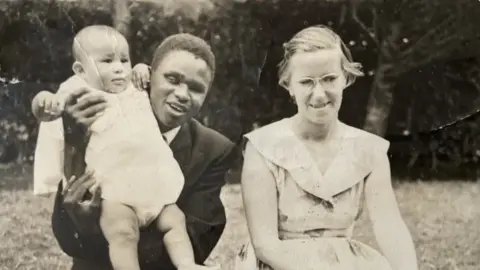 Supplied
SuppliedIt was a love story that sparked a racial scandal and made headlines across the globe.
A white British missionary, Ruth Holloway, fell in love with a black Kenyan man, John Kimuyu.
John was in a "blind institute" where Ruth worked and when she announced they were getting married, she lost her job.
Now their daughter, Ndinda Kimuyu, has started writing a book about her mother's life story, which started in 1957 during incredibly different times.
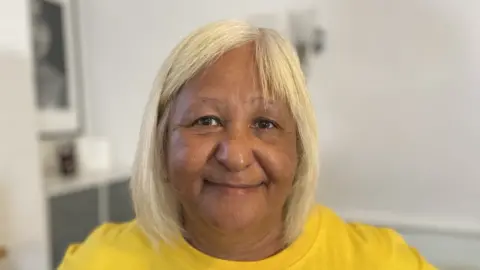
Ruth was just 19 when she left for Kenya after growing up in the Nottinghamshire mining town of Kirkby-in-Ashfield.
The couple fell in love at what was a dangerous time in Kenya. The Kenya Land and Freedom Army, known as the Mau Mau, were fighting for independence from British colonial rule.
When the couple decided to tie the knot, Ndinda said her mother booked a boat back to the UK to inform her bosses and parents, only to be met with backlash when she arrived.
"It was a very big deal," she told the BBC. "During that journey, the Salvation Army decided to strip her of her job.
"She ended up buying a wedding ring, baked it in a cake and smuggled it by ship back to Kenya."
The couple's wedding became particularly controversial because Ruth was believed to be the first white European to marry a black Kenyan.
The ceremony itself was even interrupted by the registrar, who married them, but announced that he did not agree with the wedding.
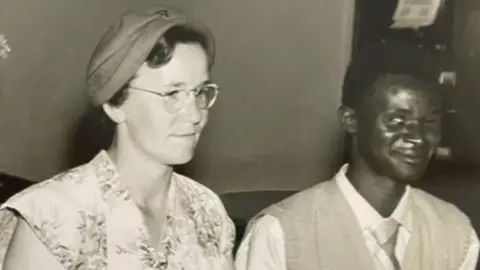 Supplied
SuppliedNdinda said their marriage was reported in newspapers and on television from the UK and Kenya to the United States and some reports said there was a threat of race riots.
She said: "The worst opposition was probably from the white colonialists in Kenya who didn't want this.
"My mum couldn't win; my dad couldn't win. There were a few positive articles but it was generally extremely racist."
Ndinda, who was born three years later, went on to form a very close relationship with her father.
But their family was wrenched apart before her fifth birthday in the wake of Kenya's independence.
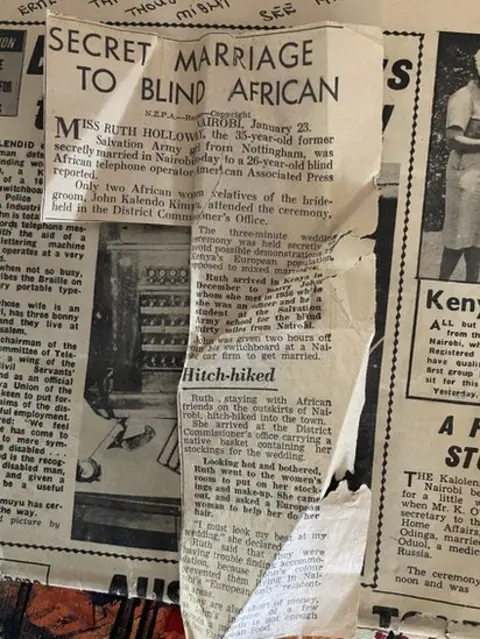 Supplied
SuppliedThe couple decided in 1965 that Ruth should take Ndinda and her two sisters back to the UK.
"I was really upset," said Ndinda. "We came with a small suitcase and the clothes on our back and we've been here ever since.
"It was a very hard time for my father. I believe [my mother] had a nervous breakdown, but she just carried on."
Ndinda said her parents thought a blind man would not find work in the UK, so John stayed in Kenya where he had a switchboard job with the police.
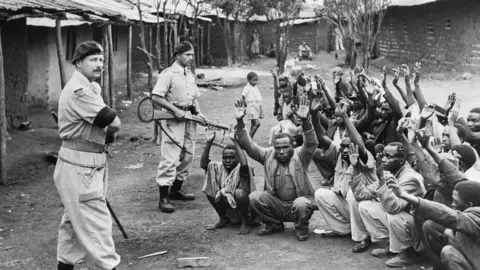 Getty Images
Getty ImagesHe kept in touch by sending Ruth reel-to-reel tape recordings, which Ndinda still treasures today.
She said her mother tried to be positive, but not being able to be with her husband was "heart-breaking" for her.
Ruth died about 30 years ago and John, who re-married twice, reached his 90s before his death in November this year.
Ndinda returned to Kenya to speak at her father's funeral last month - her first time in the country for 30 years.
The trip home inspired her to begin writing a book about her parents' story.
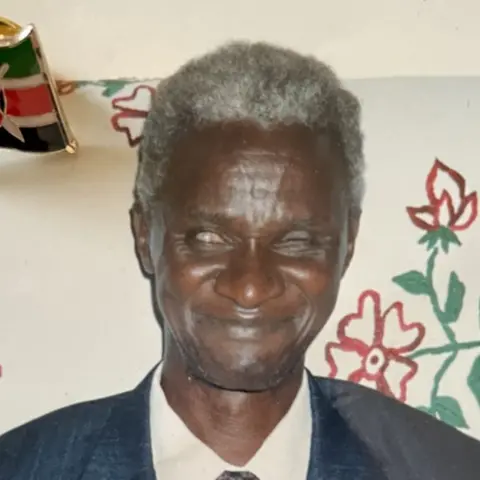 Supplied
Supplied"I felt at home," she added. "It wasn't a sad thing because my father's passed. I actually felt at peace.
"I went out on the veranda and I heard as clear as anything my mother's voice say 'it is well in my soul'.
"My mother's voice was telling me all the stories all over again, that she'd told me over the years, and my fingers just did the talking on my keyboard."
Ndinda said her parents were "pioneers" who helped to change history, adding: "We live in a different world now. It's just amazing.
"But that's love. [For] love you'll do anything. You'll climb mountains. It was love that brought them together and love that made them fight for it."

Follow BBC East Midlands on Facebook, on X, or on Instagram. Send your story ideas to [email protected].
